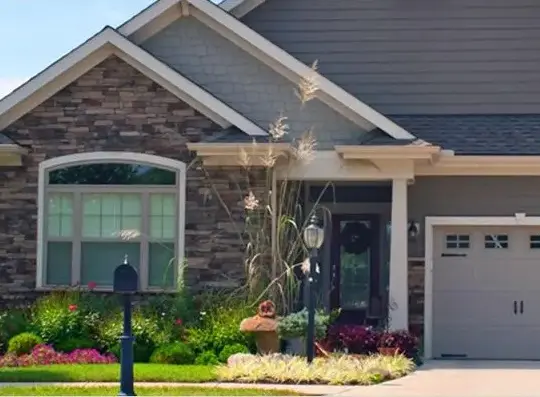Whether you love getting down and dirty with a DIY project or prefer calling a professional for help instead, knowing when each is the most appropriate is a valuable skill for homeowners.
You can save boatloads of money on labor costs by simply researching and completing a project on your own; but if you fear injury, project failure, or feel the least bit uncomfortable doing so, it may be better to hire a professional.
The last thing you want to do is overlook something that results in either the finished product not functioning how it should — or the entire project failing before it's completed. This would result in you having to call a professional to clean up your mess anyway.
Before starting any project, take into careful consideration whether it's something you're comfortable doing on your own or that you'd rather hire a professional handyman.
Things to Consider Before Starting Your DIY Project
You should thoroughly plan your DIY project to the best of your ability, anticipating where things may go wrong and creating alternative plans of action accordingly. When creating your DIY project's plan of action, consider the following.
Time
Are you budgeting the proper amount of time for yourself to complete this project? Will you be able to put this project on hold and come back to it later if need be, or is the project more sensitive to gaps in its completion (i.e., a bathroom renovation)?
If you were to stop and call a professional halfway through, how long can you afford to wait before the project needs to be completed?
Money
Is your DIY project's budget flexible? What would happen if you had to suddenly take money out of its budget to use to cover an emergency expense? How would you cover the surprise expenses required to complete the project? Would you borrow money or dip into your savings?
Properly budgeting for your DIY project as well as planning for financial pitfalls along the way will save you a lot of headaches down the road.
Skill Level
Take a moment to step back and soberly assess your skill level. How much extra research do you think you'll have to conduct before starting and while you're completing the project? By how much will this extra research slow things down and affect your project's timeline?
While there's nothing wrong with verifying techniques and double-checking your information, make sure you're budgeting this extra research time appropriately. If you still don't feel comfortable completing the project on your own, save yourself the trouble and call a professional instead.
Safety Precautions
In 2019 alone, over 39 million preventable injuries occurred in American homes and communities. Out of these 39 million injuries, 131,000 resulted in death.
"Safety first" is a cliche for a reason: It really should be your number one priority. Even with thorough research, you may not be able to fully prepare yourself in the same way a trained professional would. If you have even the slightest bit of doubt as to whether you'll be able to keep yourself safe during your DIY project, call a trained professional.
Local Codes and Ordinances
A DIY project sounds like all kinds of fun until you realize you have to adhere to local codes and ordinances while you do it. Some DIYers don't know this or find this out when it's too late, which can turn into a legal mess.
Research your local codes and ordinances before tearing anything down or erecting anything new on your property.
Projects You Should Get a Professional For
Sometimes, no matter how confident you feel about a certain project, it's best to call a trained professional. These projects often involve too many logistical unknowns or present safety hazards that an untrained DIYer cannot adequately prepare for.
Advanced Plumbing
If you're dealing with more than just a leaky faucet, calling a trained professional to handle your advanced plumbing needs will be your best choice. There's only so much that you can properly teach yourself and prepare for that doesn't come with years of experience and professional training.
For instance, what would you do if your DIY sink repair project didn't fix the problem you were almost certain that it would? How would you know for certain that you didn't make things worse for the underlying plumbing? How much more in repair costs would you have to incur to reverse what you did and hire a professional to properly handle the problem?
Electrical Work
This one goes without saying, but you should always hire a trained, professional electrician to handle any electrical work you need done in your home. The consequences of not doing so can be deadly; it's too dangerous to undergo electrical work when you're not 100% certain on what to do if and when things go wrong.
When you perform electrical work on your own, you're not only putting yourself at risk, but your property and others who share your property at risk as well. You may not realize just how hazardous everyday electrical items found in your home can be; according to the National Center for Biotechnology Information, electrocution causes about 1,000 deaths in the United States every year.
Structural Changes
Most DIYers will not have the tools and equipment required to make structural changes to their homes. Structural remodeling requires heavy-duty equipment, materials, procedures, and an abundance of time to complete properly, which is why you should hire trained structural remodeling professionals to make any structural changes to your home.
Heavy Lifting
The last thing you want to do is break your back or severely injure yourself by trying to lift something you have no business lifting on your own. If the project involves the constant heavy lifting of materials, hire trained professionals who know how to do so with proper posture, technique, and efficiency and who are least likely to drop and break something.
 Click to call
Click to call




